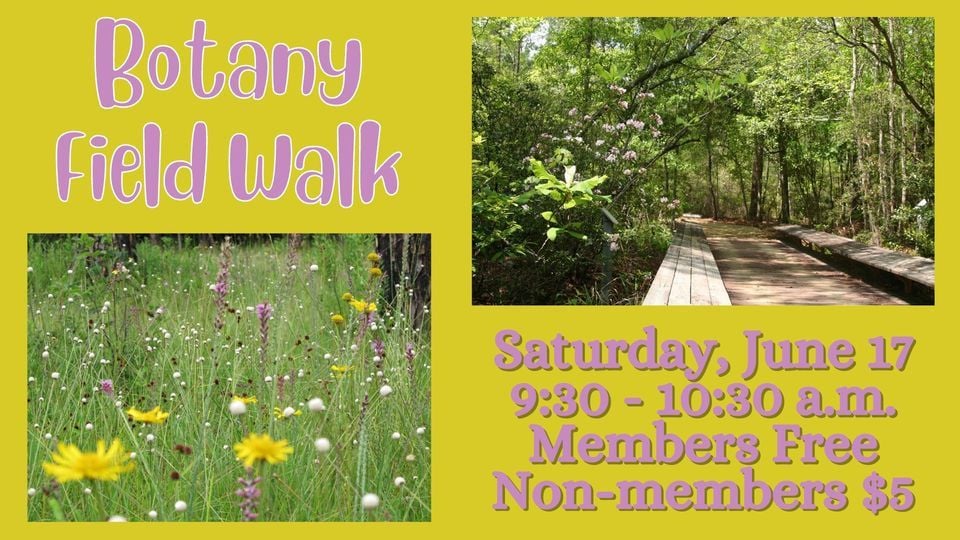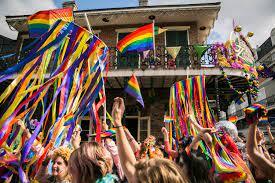Arboretum Paths: Plan now for butterflies in your garden
Published 7:00 am Wednesday, November 9, 2016

A gulf fritillary butterfly sips nectar from a bristleleaf chaffhead in the Arboretum’s south pitcher plant bog (photo by Pat Drackett).
By Pat Drackett, Director, The Crosby Arboretum
MSU Extension Service
These coming months will offer us some “resting” time when we are less active with outdoor projects, and have the chance to curl up with gardening books and magazines or search the Internet for new ideas for our gardens.
I still remember the glorious end to the summer in our south pitcher plant bog. The area was abundant with many different species of butterflies visiting the late-season perennials for nectar.
Publications and articles about attracting butterflies and other gardening topics are available on the Mississippi State University Extension Service website (http://extension.msstate.edu/). Here, you will find helpful, research-based information to turn your yard into a haven for butterflies. On the home page, enter the keywords “attracting butterflies” to access this material.
The Extension fact sheet, “Attracting Butterflies to Mississippi Gardens,” provides lists of plants that will attract the insects to your garden. Butterflies require not only nectar plants, for example, black-eyed Susan, Coreopsis, ironweed, clover, purple coneflower, and Liatris, but their “host” plants. Host plants, such as dill, parsley, and milkweed, are the specific plants that butterflies will lay their eggs on, and that their caterpillars will consume once they hatch.
When planning your butterfly garden, include both host and nectar plants to maximize the number of butterflies you will attract. Native milkweeds are not only great nectar plants, but are the host plant of monarch butterflies. Hopefully your milkweeds will become laden with their green chrysalises.
Plants for attracting butterflies and other pollinating insects, and information on wildlife needs are included in MSU Extension publication no. 2402, “Establishing a Backyard Wildlife Habitat
Butterflies are drawn to mud puddles. Here, they siphon up needed salt and minerals. You can attract butterflies to your garden by providing them with a “puddling pool”. Fill a large plastic or terra cotta saucer with sand or gravel, and keep this wet.
If you water frequently or have an irrigation system, place the saucer where it will capture the water. As butterflies prefer to rest on flat, moist surfaces, you can include flat stones or bricks in the puddling pool.
One quick and easy way to attract butterflies to your garden doesn’t involve any gardening at all. Just whip up a “butterfly fruit cocktail”! Watch them flock to your yard when you offer them a platter of overripe and rotting fruit.
Create a mixture of fruit such as bananas, apples, cantaloupe, apples, mango, citrus, and strawberries, in a low dish or plate. If you already have a bird feeder, the type that hangs on a chain from a branch or hook, this is a wonderfully simple and practical way to “serve” the fruit mixture.
Some butterfly fruit mush recipes call for pouring a fruity flavored, mineral-rich sports drink over the mixture. This is especially attractive to the insects.
Butterflies need to take shelter from wind and rain, and will roost at night in shrubs. You can provide additional shelter for them by creating a log pile in a corner of your garden. Other butterfly-friendly garden items are flat rocks where they can bask in the sun on cool mornings, wet muddy areas, and shallow water sources such as a saucer filled with pebbles and water.
A Native Trees and Shrubs field walk will take place on Saturday, November 12 at 10 a.m., led by Pearl River County Extension Agent Dr. Eddie Smith and Arboretum Director Pat Drackett. The cost is $5 for non-members.
Create beautiful botanical leaf ornaments in a Cast Stone Workshop with Director Pat Drackett on Saturday, November 12 at 1:00 p.m. Members, $6; non-members $7. To sign up for programs, call the Arboretum office at 601-799-2311.
The 14th Annual Piney Woods Heritage Festival will be held on November 18 and 19. Friday is a school field day and Saturday is for the general public (adults $5, children $1). See our website at www.crosbyarboretum.msstate.edu





